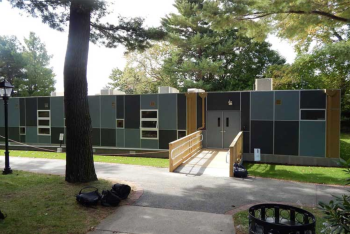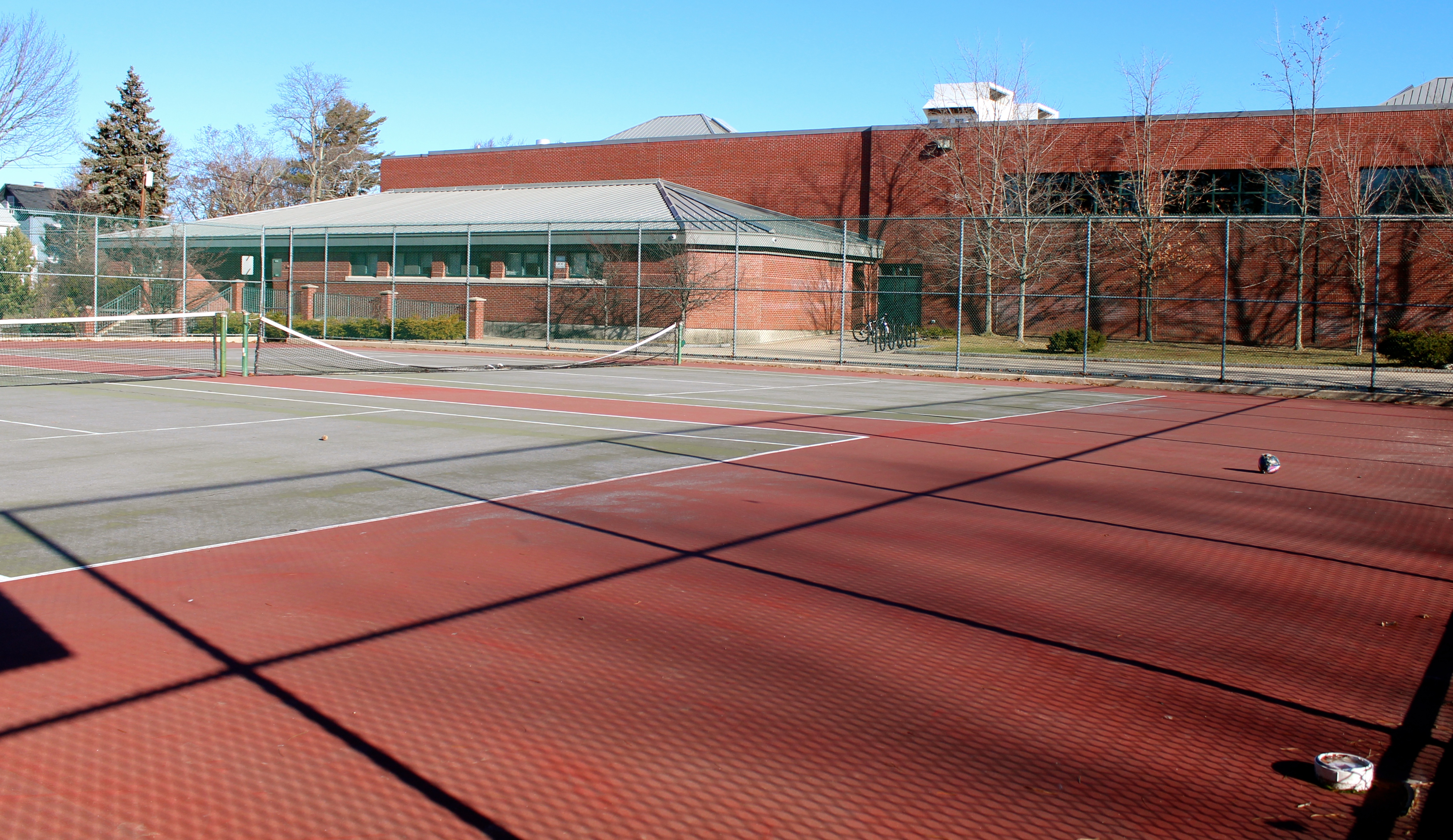Photo: The Chenery Middle School tennis courts which will house six modular classrooms in August 2016.
After putting off a decision for the past two years, Belmont School District announced last week it will place six modular classrooms on the Chenery Middle School tennis courts for the start of the 2016-17 school year in August.
The classrooms – single-story temporary prefabricated structures most notably used last to house Wellington Elementary students as the new school was being built five years ago – are being brought to the middle school to alleviate the skyrocketing enrollment in the past five years that is taxing the building’s capacity, according to Belmont School Superintendent John Phelan and members of the Capital Budget Committee.
The decision to go with modulars is not a surprise as the district initially discussed adding temporary classrooms nearly three years ago when the Space Task Force established by former Superintendent Dr. Thomas Kingston concluded the Chenery “does not have enough space to support the current level of student enrollment” and won’t be able to fit the large classes funneling from the four elementary schools in the next five years.”
The solution “will result in the need for modular classrooms” by the beginning of the 2016-17 school year.
The six classrooms – equipt with their own bathrooms and powered with underground electrical wiring – each can hold up to 25 students, making a dent in the rapid increase in student enrollment in Belmont schools.
While the Chenery is the only school selected this coming school year, the school district will evaluate the enrollment numbers at the elementary schools with the possibility of purchasing more units for one or more of the district’s four elementary schools.
Phelan said the district has no timetable on how long the units will be used or if they will be moved from school to school when there is a need for more classrooms.
“[They’ll be] used as long as needed,” he said.
While Phelan said the district has yet to decide on the type or style of the “mods” to be placed at the Chenery “we are working with the same engineering firm that Winchester is using” during the construction of that district’s new High School.
On that project, Littleton-based firm Triumph Modular added eight classrooms as a new school was being built on the site of the current building.
Closer to home, Triumph was hired by Belmont Hill School in 2013 to provide six classrooms, an open testing area, five private offices, a conference room, and restrooms for staff and students for a year and a half during construction of a school building.

Modular units at Belmont Hill School 2013.
According to a “rough budget” from a modular study created by the school district, the estimated cost for lease the mods for three years comes to $1.12 million compared to the upfront cost of $1.23 million buying the units.
“The one benefit with buying [the modulars] is that there is a resale market for the newer units” as opposed to the type the district bought in the past, said Ann Marie Mahoney, Capital Budget chair.
While the school district has yet decided if they will lease or buy the units – “a cost analysis [is] underway” to determine the financially wise course, said Phelan – the likely purchase of the modular structures could result in the Capital Budget Committee using its entire $1.1 million budget acquiring the units.
“We can’t keep asking taxpayers to bond another million dollar expense,” said Mahoney.
“But then we can’t meet requests from the other departments this budget cycle,” she said.
“It will simplify our Town Meeting report,” Mahoney said wistfully.








Incorporating modular classrooms to expand the school is one of the most effective and efficient ways to support the current level of student enrollment. Modular building methods have many benefits that outweigh traditional construction methods, such as shorter construction time, reduced site disruption and a more consistent quality overall.